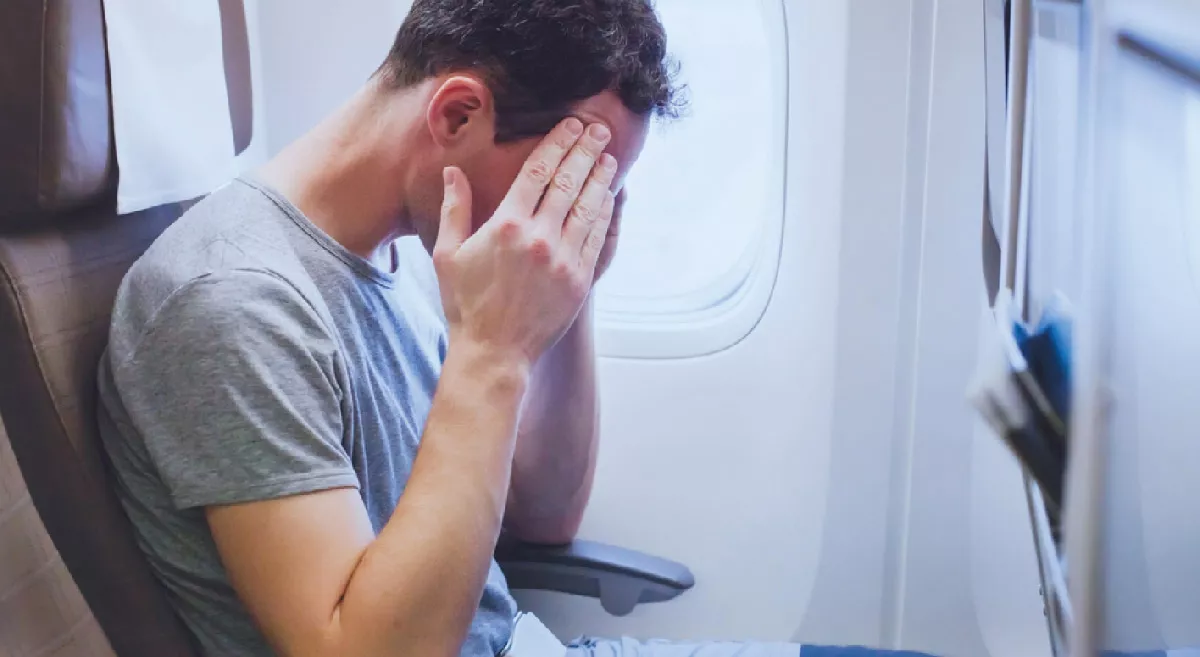Does fasting help with jet lag?
The idea that fasting can help with jet lag stems from the connection between circadian rhythms and metabolic cycles. While there is limited direct evidence, studies on circadian biology suggest that fasting may reset the body’s internal clock. The “Argonne Anti-Jet-Lag Diet”, developed in the 1980s, popularized this idea, claiming that fasting for 12-16 hours before and during a flight can minimize jet lag.
How does fasting help individuals to prevent jet lag?
- Circadian Clock Reset: Our body has a secondary clock linked to metabolic activity. Fasting for an extended period (12-16 hours) can reset this clock. Once you eat at your destination, your body aligns to the local time zone more quickly
- Reduction in Gastrointestinal Disruption: Flying disrupts digestion due to cabin pressure changes and dehydration. Fasting prevents these issues, allowing the body to focus on adapting to the time shift.
- Minimizing Inflammation and Fatigue: Large meals during flights can cause bloating and fatigue. Fasting prevents postprandial (after-eating) sluggishness, which can exacerbate the feeling of jet lag.
- Synchronization: Breaking the fast at your destination during the local breakfast hours helps synchronise your body’s hunger cues with the local time zone.
What happens when an individual experiences jet lag? Effects of it on health?
Jet lag occurs when your body’s internal clock (circadian rhythm) is misaligned with the time zone of your destination. The condition arises because your body’s biological functions, including sleep, digestion, and hormone release, are still operating on your home time zone.
Symptoms of Jet Lag:
- Physical: Fatigue, insomnia, gastrointestinal distress (constipation, bloating), headaches.
- Cognitive: Difficulty concentrating, memory impairment, irritability, and mood disturbances.
- Sleep Disruption: Difficulty falling or staying asleep, early waking, or excessive drowsiness during the day.
What are the hacks that can be used to prevent jet lag?
- Adjust Your Schedule Before Travel : Gradually shift your sleep and meal times to align with the destination’s time zone a few days before traveling.
- Fasting and Meal Timing: Fast for 12-16 hours before and during the flight. Break your fast at a meal time corresponding to the destination’s local time.
- Use Light Strategically:
Morning Light for Eastward Travel: Seek sunlight exposure in the early morning at your destination to advance your circadian rhythm.
Evening Light for Westward Travel: Seek sunlight exposure in the evening to delay your circadian rhythm. - Stay Hydrated: Dehydration exacerbates fatigue and other jet lag symptoms. Drink plenty of water during the flight and avoid alcohol and caffeine, which can disturb sleep.
- Opt for Physical Activity: Exercise upon arrival to energise the body and signal the new day-night cycle.
- Plan Your Flight Timing: If possible, choose flights that allow you to arrive in the evening. This makes it easier to sleep upon arrival.
- Sleep During the Flight: Use noise-canceling headphones, eye masks, and travel pillows to sleep comfortably on the plane, aligning sleep with the destination’s night time.





